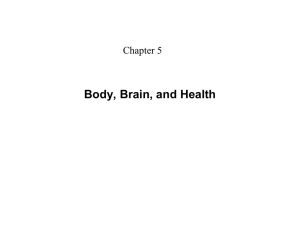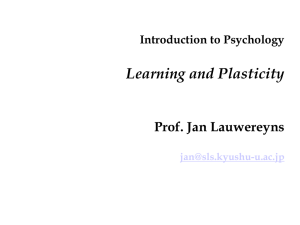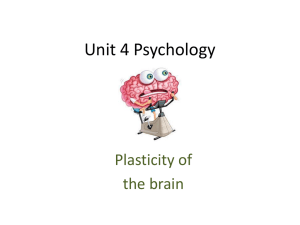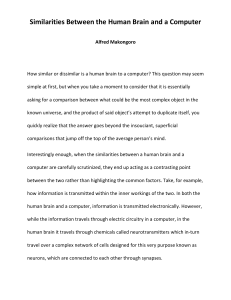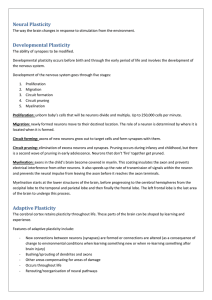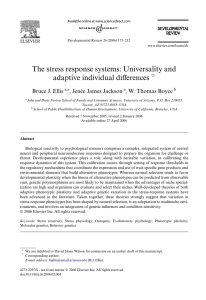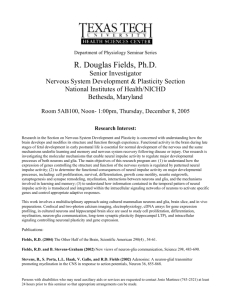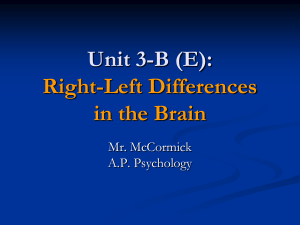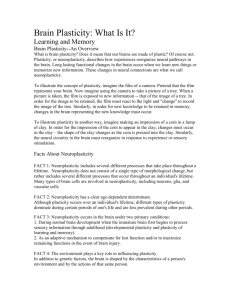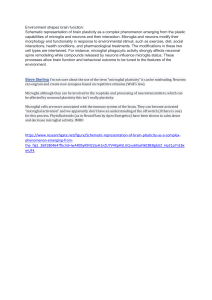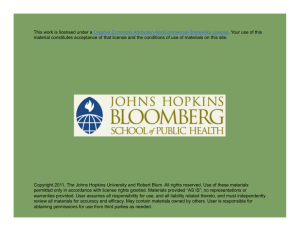Application of Plasticity :
advertisement
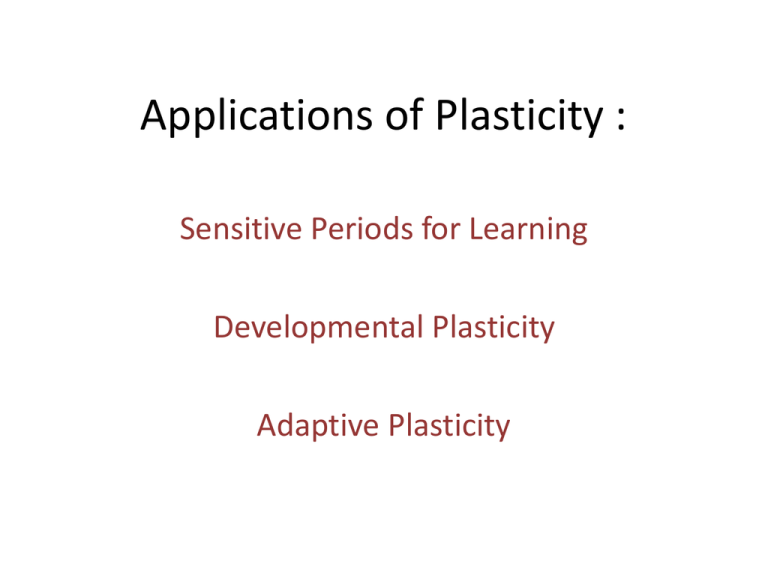
Applications of Plasticity : Sensitive Periods for Learning Developmental Plasticity Adaptive Plasticity Sensitive & Critical Periods for Learning • Definition: refers to a very narrow period of time in an animal’s development in which the animal is preprogrammed for learning to occur. • For example, ethnologist Konrad Lorenz studied how young birds imprint (form an immediate attachment) to the first moving object they see after they hatch from the egg. • Lorenz found that greylag geese hatchlings imprinted on him and followed him wherever he went. • For these geese, the critical period was the first few moments of their life (Lorenz 1937). • In humans these critical periods are often referred to as sensitive periods because the time in which they occur is more flexible and broad than critical periods for non-human animals. Sensitive Periods • Definition: Time an organism is more responsive to certain stimulation • Lack of stimulation can lead to long term deficit • E.g. closed eye from birth leads to later blindness even when eye eventually opened • Language acquisition has a sensitive period (0 – 12 years) • Learning a new language in teen years can lead to the development of a second Broca’s area! Review: Developmental Plasticity • Changes as a result of experience and maturation • Synaptogenesis – new neural connections • Synaptic pruning – removal of synaptic connections that are no longer needed • Adults have less neural connections than a 3 year old! Review: Adaptive Plasticity • The brain reorganises the way neurons in different regions operate in response to a deficit • Deficits can occur from birth or as a result of brain damage Brain plasticity http://www.youtube.com/watch?v=TSu9HGnlMV0 Neuroplasticity http://www.youtube.com/watch?v=f0G8Lz5vFds&feature=related Damage from Birth - Congenital • Congenital – E.g. People who are blind from birth may have occipital lobes that are used for senses other than vision • This may explain why people who are blind from birth have very good hearing or tactile sensitivity Damage from Injury • When a particular brain area is damaged e.g. stroke other brain areas can ‘take up the slack’ • This is what happens when people ‘recover’ from brain damage • Nerve cells do not regrow, rather other neurons take over the functions of the damaged cell • Rerouting – neurons near damaged area seek new active connections with healthy neurons • Sprouting – new dendrites grow • May occur near damaged area of in other parts of brain • Allows shifting of function from damaged area to healthy area • ‘Relearning’ tasks like walking, eating etc. helps these new connections form Adaptive Plasticity and Experience Why is it so? – Musicians have enhanced motor and sensory areas – Taxi drivers have enhanced functioning of their parietal lobes – Dancers motor areas are enhanced
